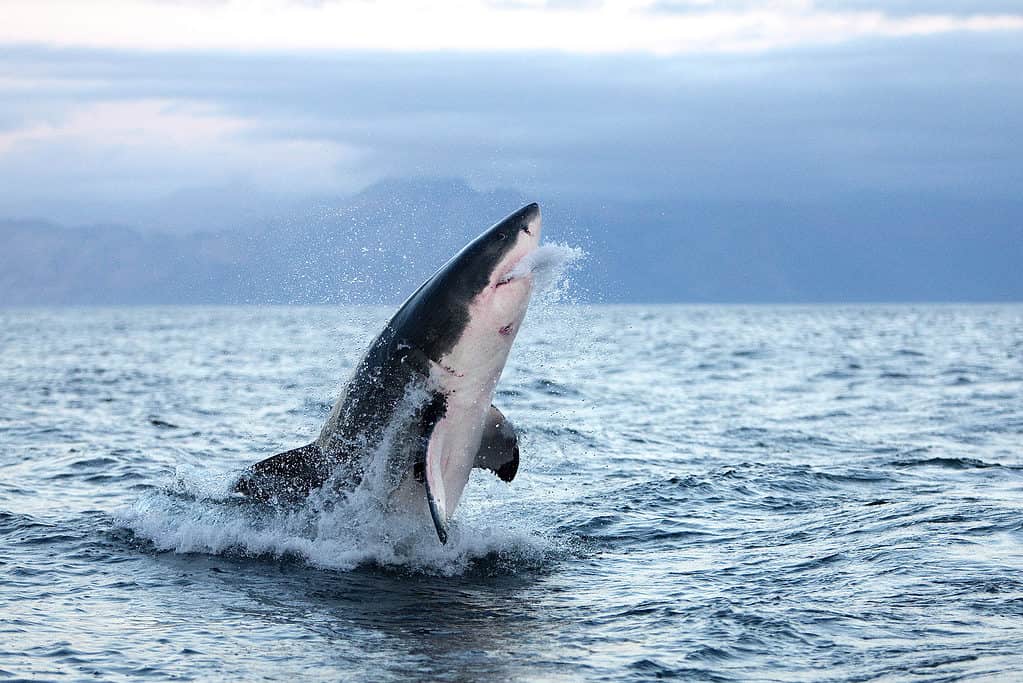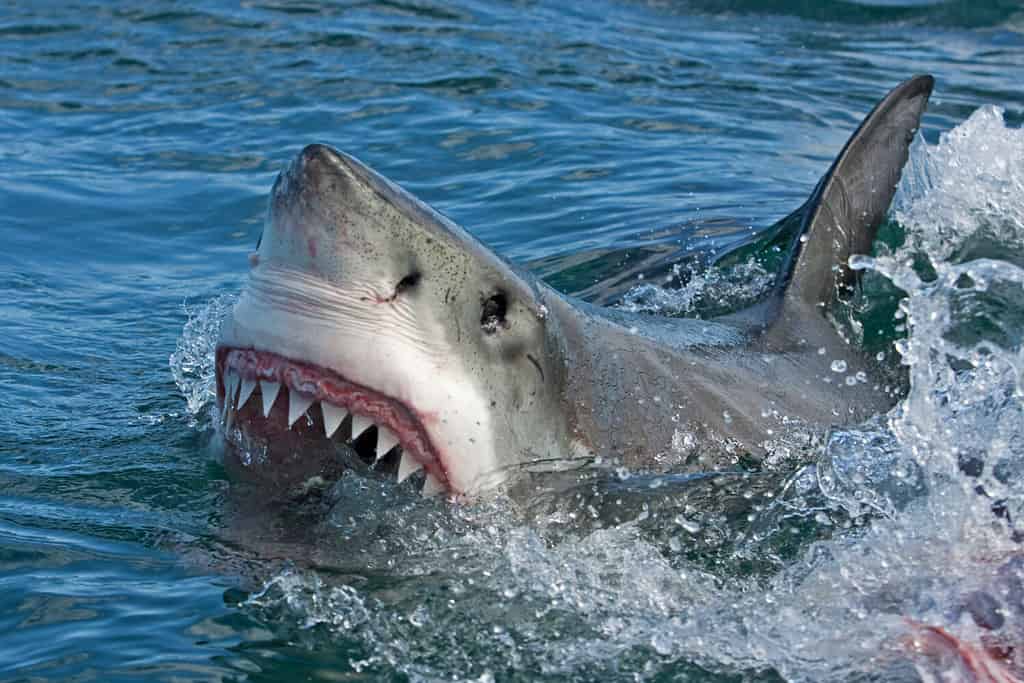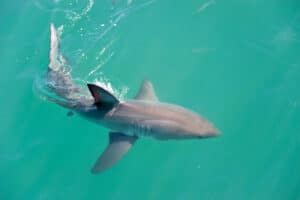The great white shark is an animal of both power and terror. Their presence commands the attention of the waters that roam. And incites fear in the residents of neighboring states and countries that they pass by. We will learn more about the incitement of fear later off the coast of South Carolina.
A massive great white shark was spotted off the coast of South Carolina this past week. And residents are shocked to see this shark pass through. OCEARCH shares a past post on X, previously known as Twitter, of what this great white looks like below.
Massive Great White Shark Sighting in South Carolina
On Sunday, December 3, 2023, a great white shark (Carcharodon carcharias) was spotted in South Carolina. This great white weighed 1,701 pounds and reached 13 feet and seven inches in length.
This massive great white shark is Mahone, named after Mahone Bay in Nova Scotia, Canada. OCEARCH offers Mahones travel logs because they were able to tag the shark back in 2020. Below is a list of his travels.
| Date Tagged: | October 1, 2022, 12:00 AM |
| Location Tagged: | Lunenburg, Nova Scotia |
| Latest Ping: | December 3, 2023, 7:33 AM |
| Latest Z-Ping: | December 1, 2023, 10:14 AM |
Fox 35 News reports that Mahone “is the largest male shark tagged by the nonprofit in Canadian waters.” OCEARCH reports that they have tagged 92 great white sharks. And they have collected the essential data needed to complete 25 science projects. This nonprofit organization’s goal is to tag 100 great white sharks.
Their research on the great white shark includes their features, diet, and habitat life. This makes us wonder what we currently know of the great white shark. Let’s look at who they are and how many live in South Carolina.
How Many Great White Sharks Are in South Carolina?

Great white sharks are carnivores that eat seals, seal lions, and dolphins.
©slowmotiongli/Shutterstock.com
The great white shark is of the family Lamnidae. According to the Australian Museum, four sharks are in this family. The four sharks are the following. Mackerel sharks (Lamniformes), makos (Isurus oxyrinchus), porbeagles (Lamna nasus), and the great white shark (Carcharodon carcharias).
Great whites have a “vulnerable” conservation status, according to the IUCN Red List. There are only approximately 3,500 remaining, and this number dwindles with every passing year.
Great white sharks are in the Atlantic and Pacific Oceans. As we can see from OCEARCH’s tracking of its great white sharks, they constantly move around. Another of their tagged great white sharks, Breton, was also tagged in Nova Scotia. He also traveled around the United States and passed through North Carolina.
As far as South Carolina goes, no reported stable population lives in this state. Think of the ones that pass by, like guests who vacation there before moving on. Various scattered news reports of sharks off the coast of South Carolina. Here are a few sightings of great white sharks passing by in South Carolina this past year.
With sightings such as this around a place where these sharks are not frequent, we want to know if there is anything to fear about these animals.
Are Great White Sharks Aggressive?

Great white sharks can reach over 20 feet!
©Martin Prochazkacz/Shutterstock.com
Our feelings of fear over this beast of an animal are rightly placed. Hollywood has done a great job of putting this fear in us. They did this when they came out with a series of movies called Jaws. However, we would caution you not to believe everything Hollywood puts out about animals, as they are often not correct.
To put it quite plainly, great white sharks are highly aggressive. They are apex predators of the waters, and few in the waters can challenge their ferocious strength.
According to the National Library of Medicine, on trauma caused by sharks, they have this to say below.
“Of the 470 shark species, only 30 species of sharks have been found to have attacked humans, and only 4 of the 30 species make up the majority of attacks.” They have concluded that the four species of aggressive shark attacks are the following: the tiger shark, bull shark, oceanic whitetip, and the great white shark.
As terrifying as seeing a great white shark in the water, the best thing you can do is quietly back away. Loud sounds and big movements do not scare sharks like bears. This would only entice this shark to come after you, thinking you were prey. Be knowledgeable so if you are ever in this position, you know how to handle it!
The photo featured at the top of this post is © iStock.com/ELizabethHoffmann
Thank you for reading! Have some feedback for us? Contact the AZ Animals editorial team.






